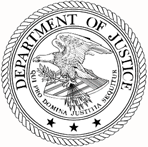 |
Thom Mrozek (213) 894-6947 |
Return to the 2010 Press Release Index
Release No. 10-011
January 19, 2010
INLAND EMPIRE MAN AND THAI SUPPLIER CHARGED WITH SMUGGLING IVORY FROM ENDANGERED AFRICAN ELEPHANTS
LOS ANGELES – A federal grand jury today indicted a Southland man and a Thai national in a scheme that allegedly smuggled ivory from endangered African elephants into the United States.
The 11-count indictment returned today charges:
Moun Chau, 50, of Montclair, California, who allegedly purchased ivory that was offered for sale on eBay from Thailand; and
Samart Chokchoyma, of Bangkok, Thailand, who allegedly obtained African elephant ivory in Thailand and offered it for purchase on eBay.
The indictment alleges conspiracy, illegally offering to sell endangered species, illegal importation of wildlife, entry of goods by false statement and smuggling wildlife.
According to the indictment, Chokchoyma offered ivory for sale on the eBay Internet auction website. On several occasions, Chau purchased ivory, in one instance purchasing four tusk tips. Chokchoyma allegedly shipped ivory to the United States in violation of the law, in one case claiming on a customs declaration that the ivory shipment was a “Gift” containing “Toys.”
The indictment alleges that Chau and Chokchoyma violated the Endangered Species Act and an international treaty called the Convention of International Trade in Endangered Species of Wild Fauna and Flora. Both the United States and Thailand are signatories to the treaty, which prohibits the importation of any species threatened with extinction unless the United States has issued an importation permit and there is a foreign export permit from the country where the specimen originated. With very limited exceptions, the United States prohibits the importation of any amount of ivory.
Illegal wildlife smuggling is a global problem, with some estimating that it generates at least $5 billion, and may exceed $20 billion annually, according to a report prepared for Congress. “This would rank the illegal wildlife trade as among the most lucrative illicit economies in the world, behind illegal drugs and possibly human trafficking and arms trafficking,” according to the Congressional Research Service (see: http://fpc.state.gov/documents/organization/102621.pdf).
Investigators with the United States Fish and Wildlife Service seized dozens of ivory specimens from Chau’s Claremont business. Some of the ivory came from African elephants, the largest mammal that lives on land. African elephants are recognized around the world as an endangered species, due in large part to loss of habitat and continued poaching of the animals, which are usually killed only for their tusks.
“This case demonstrates the power of cooperative law enforcement efforts, not only to enforce the law, but to protect animal species that are threatened with extinction” said Acting United States Attorney George S. Cardona. “Investigators from the United States worked collaboratively with their counterparts in Thailand to thoroughly investigate this smuggling scheme, including working to identify individuals who were smuggling ivory into Thailand.”
An indictment contains allegations that a defendant has committed a crime. Every defendant is considered innocent until and unless proven guilty beyond a reasonable doubt.
If they are convicted of the crimes alleged in the indictment, Chau faces up to 25 years in federal prison, and Chokchoyma could be sentenced to as much as 53 years in prison.
Chau will be summoned to appear for an arraignment next month in United States District Court in Los Angeles. Chokchoyma was arrested in November by Thai authorities who brought charges under Thai law.
This case is the result of an investigation conducted by the United States Fish and Wildlife Service, Office of Law Enforcement. U.S. Customs and Border Protection and U.S. Immigration and Customs Enforcement provided substantial assistance. The investigation of this case was the first cooperative international law enforcement effort related to wildlife crime between the United States Fish and Wildlife Service and the Royal Thai Police. The Asia-based Freeland Foundation, a non-governmental conservation organization, was instrumental in bringing together law enforcement authorities from both nations.
#####
Release No. 10-011
Return to the 2010 Press Release Index
